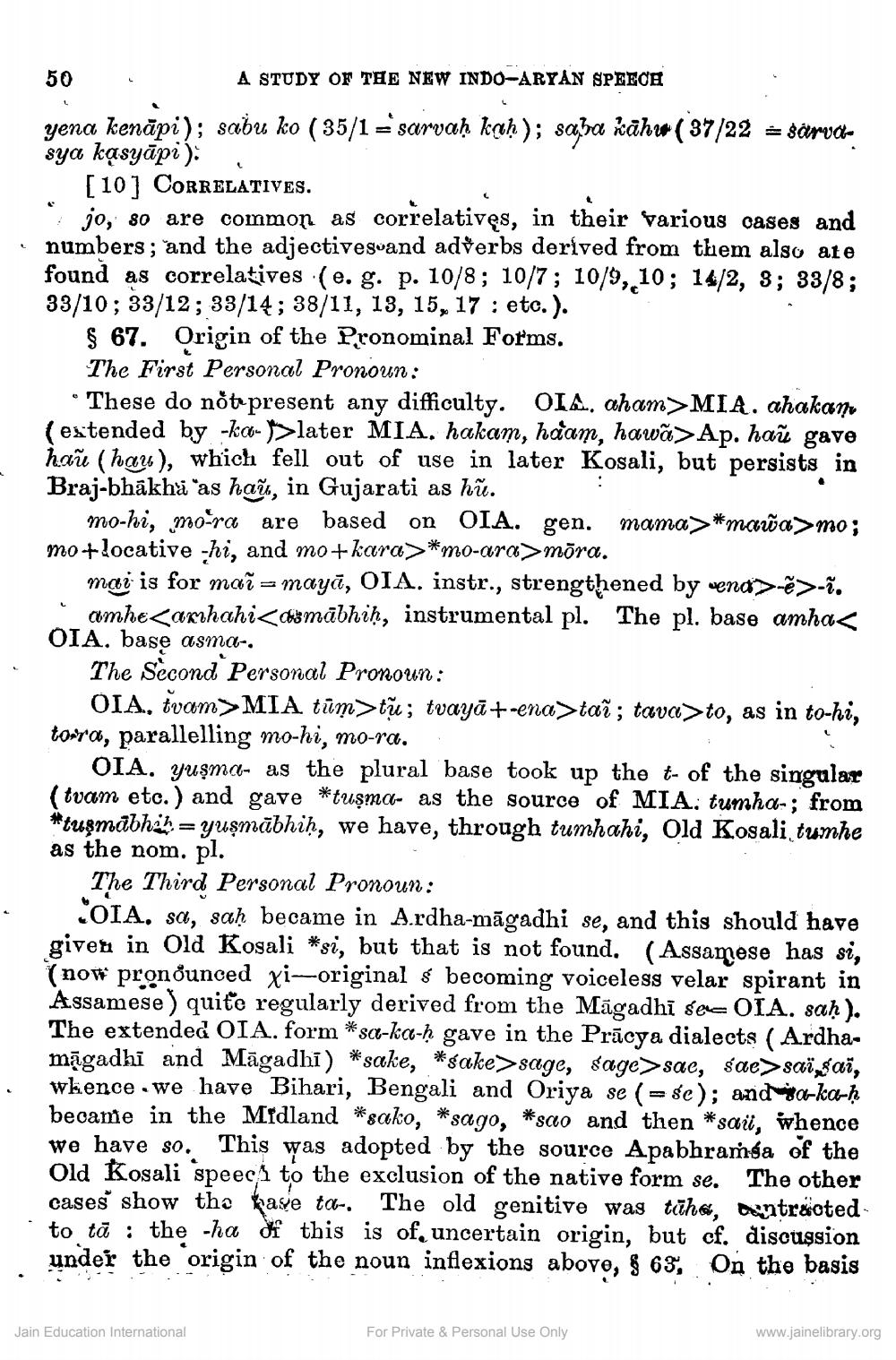________________
50
A STUDY OF THE NEW INDO-ARYAN SPEECH yena kenāpi); sabu ko ( 35/1 =' sarvaḥ kah); saba kähr ( 37/22 = sdructe sya kąsyāpi):
[10] CORRELATIVES.
jo, 80 are common as correlatives, in their various cases and . numbers; and the adjectives and ad8erbs derived from them also ate
found as correlatives (e. g. p. 10/8; 10/7; 10/9, 10; 14/2, 3; 33/8; 33/10; 33/12; 33/14; 38/11, 13, 15, 17 : etc.).
§ 67. Origin of the Pronominal Forms.
The First Personal Pronoun: • These do not present any difficulty. OIA. aham>MIA. ahakanı (extended by -kc->later MIA. hakam, haam, hawõ>Ap. haī gave hañ (hay), which fell out of use in later Kosali, but persists in Braj-bhākha ‘as haū, in Gujarati as hũ.
mo-hi, moʻra are based on OIA. gen. mama> *maña>mo; mo+locative -hi, and mo+kara>*mo-ara>möra.
mai is for maī= mayā, OIA. instr., strengthened by wena> >-.
amhe <axhahi<csmábhiḥ, instrumental pl. The pl. base amha< OIA. basę asma-.
The Second Personal Pronoun:
OIA, tvam>MIA tūm>tự; tvayā +-ena>tas; tava>to, as in to-hi, torra, parallelling mo-hi, mo-ra.
OIA. Yuşma- as the plural base took up the t- of the singular (tvam etc.) and gave *tuşma- as the source of MIA, tumha-; from #tuşmabhih=yuşmābhiḥ, we have, through tumhahi, Old Kosali tumhe as the nom. pl.
The Third Personal Pronoun: LOIA. sa, sah became in A.rdha-māgadhi se, and this should have given in Old Kosali *si, but that is not found. (Assamese has si, (not pronounced xi-original s becoming voiceless velar spirant in Assamese) quite regularly derived from the Māgadhī sene OIA. saḥ). The extended OIA. form *sce-kc-h gave in the Prācya dialects (Ardhamāgadhi and Māgadhī) *sake, *sake>sage, sage>sae, sae>saï,sai, whence we have Bihari, Bengali and Oriya se ( = $e); and you-ko-ḥ became in the Midland *sako, *sago, *sao and then *sai, whence we have so. This was adopted by the source Apabhramba of the Old Rosali speech to the exclusion of the native form se. The other cases show the kave ta-. The old genitive was tūhe, antracted to tā : the -ha df this is of, uncertain origin, but cf. discussion under the origin of the noun inflexions above, $ 65, On the basis
Jain Education International
For Private & Personal Use Only
www.jainelibrary.org




